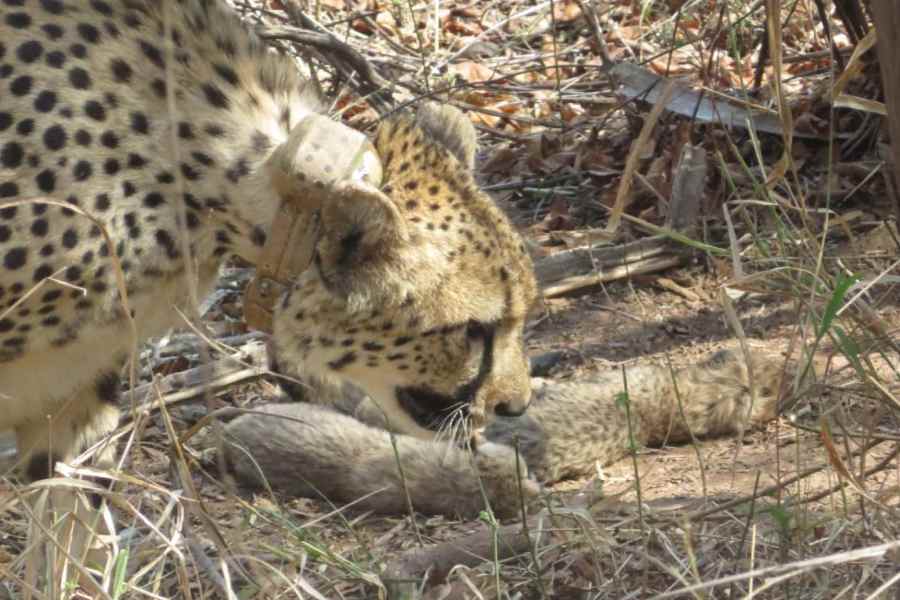India’s cheetah introduction project on Sunday celebrated its fourth litter. A cheetah from South Africa has given birth to five cubs at the Kuno National Park in Madhya Pradesh, the Union environment ministry said.
Their births mark the first litter of cheetahs brought from South Africa to Kuno and raises the count of India-born cubs to 13, environment and forests minister Bhupendra Yadav wrote, announcing their birth on X.
“Congratulations to all, especially the team of forest officers, vets, and field staff who have ensured a stress-free environment for (the) cheetahs, which has led to successful mating and birth of the cubs,” Yadav posted. “The total number of cheetahs, including cubs, in Kuno National Park is 26.”
The births suggest that the Indian team, independently, is becoming adept at cheetah management and facilitating the birth of cubs, an official with an international wildlife organisation tracking India’s cheetah project said on Sunday.
“They’re quickly building their learning curve — this is going according to plan,” the official said.
The environment ministry had flown into Kuno eight cheetahs from Namibia in September 2022 and 12 cheetahs from South Africa in February 2023 under a project aimed at establishing clusters of cheetah populations in India’s grasslands and forests. India had declared the cheetah locally extinct after the last Indian cheetahs had been hunted and killed in 1947.
The earlier litters in Kuno had emerged from Namibian cheetahs in March 2023 and January this year. Alongside the litters, a series of cheetah deaths have also punctuated the project against a backdrop of concerns among some wildlife biologists about what they have described as India’s lack of adequate open space for wild cheetahs.
Seven adult cheetahs and three of four cubs born in March 2023 have died from various determined and undetermined causes since March last year. Wildlife officials had attributed the cub deaths in May 2023 to heat and dehydration.
“Cheetahs are fragile large predators and their reintroduction is extremely challenging,” said Vincent van der Merwe, a cheetah specialist with the Metapopulation Initiative in South Africa, who had helped bring the cheetahs from South Africa into Kuno.
“These births represent the beginning of the recovery of wild cheetah populations across their historic range in Asia,” van der Merwe told The Telegraph.
But sections of wildlife biologists cite the prolonged periods the cheetahs in Kuno have spent within fenced enclosures as a signal that the project has not proceeded as planned. The project is aimed at establishing free-roaming cheetah populations in the open wild.
“Almost all the cheetahs remain in captivity and all the births have taken place within fenced enclosures,” said Ravi Chellam, a large cat specialist and coordinator of the Biodiversity Collaborative, a network of conservation researchers. “For now, this is more a glorified cheetah safari than a conservation project.”










